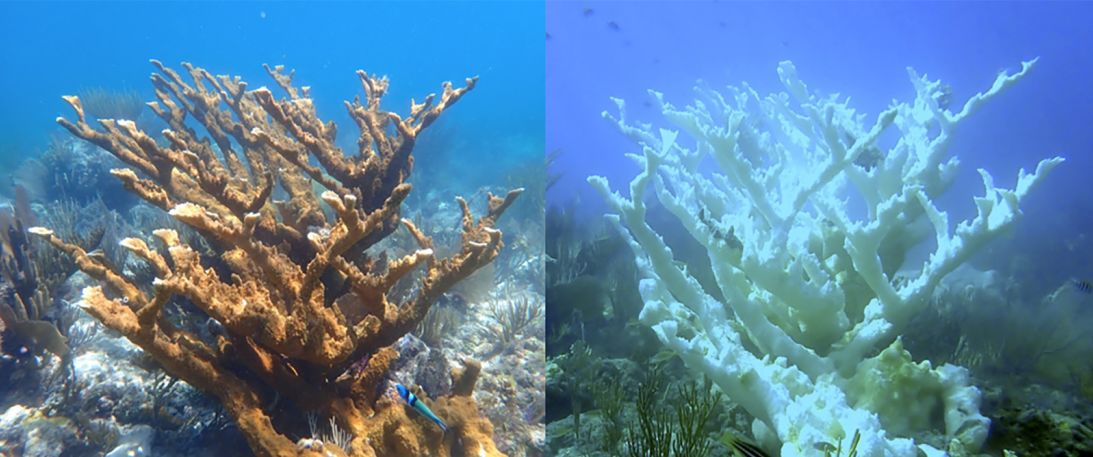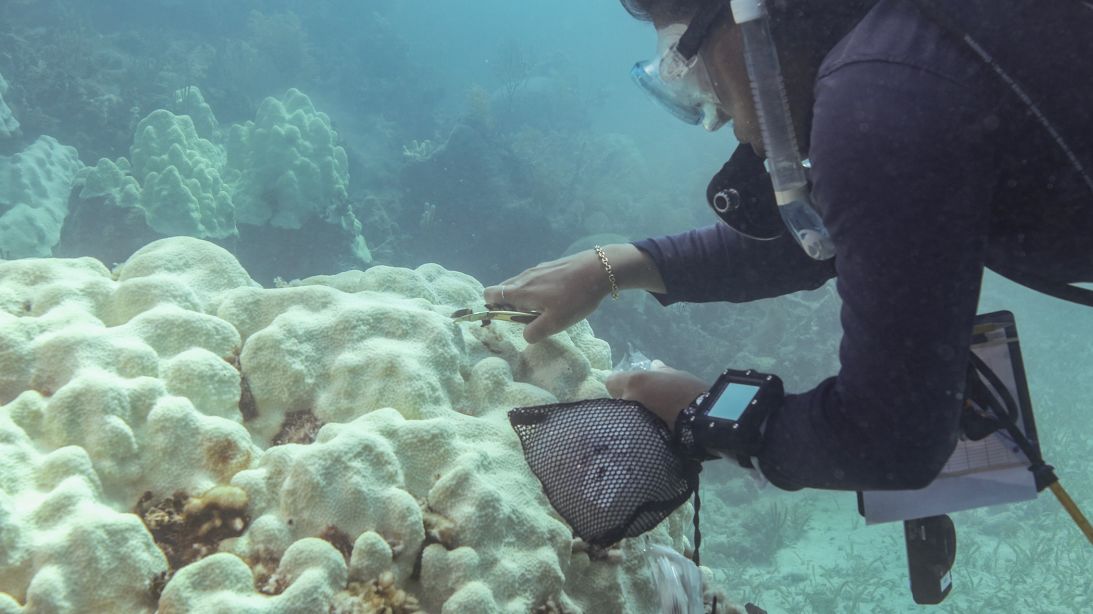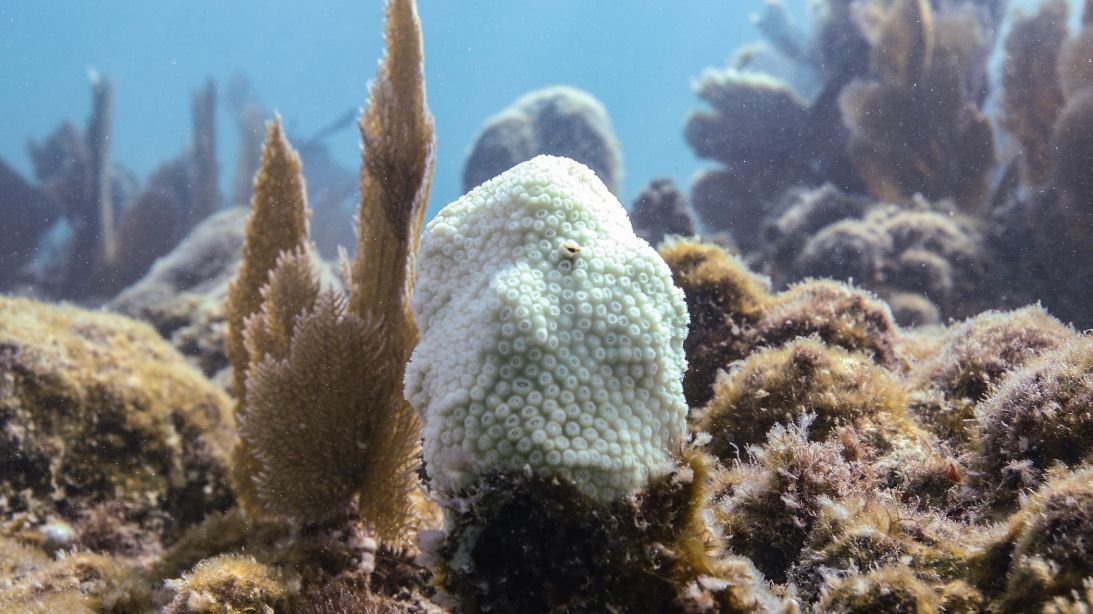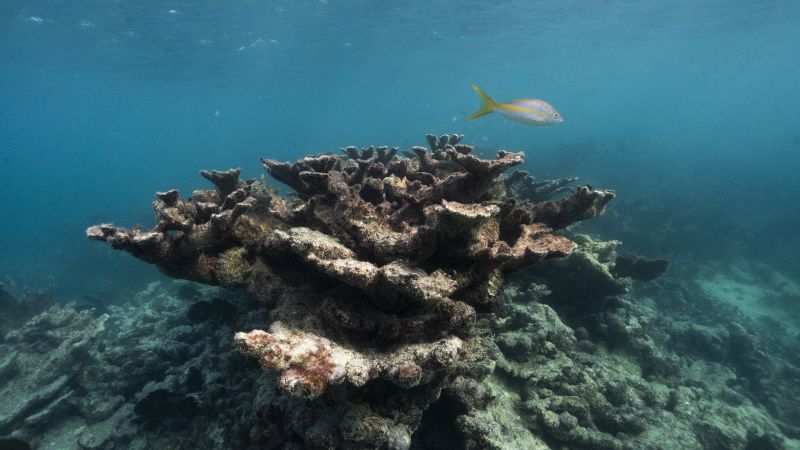Elkhorn and staghorn corals used to carpet Florida’s reef system, rising like antlers from the seabed — but not anymore. These crucial coral species are now “functionally extinct” in the region after record-breaking ocean temperatures, according to a study published Thursday.
The corals, which have been dominant reef builders in Florida for the past 10,000 years, were already critically endangered due to a host of factors including disease, pollution, hurricanes and ocean warming. But an unprecedented marine heat wave may have delivered a fatal blow.
In the summer of 2023, Florida’s water temperatures peaked at more than 90 degrees Fahrenheit, the highest recorded in the region for at least 150 years.
Heat stress is a coral killer. It causes them to eject the algae that provide them with their color and energy, leaving behind a ghostly bleached skeleton. They can recover if temperatures return to normal, but the more intense and prolonged the heat, the more likely it is they will die.
The 2023 heatwave in Florida lasted roughly three months. As the high temperatures persisted, researchers dove beneath the water to closely monitor more than 52,300 Acropora corals, a group that includes staghorn and elkhorn corals. The study area covered all of Florida’s coral reef system, which stretches nearly 350 miles from the Dry Tortugas and Florida Keys in the southwest to the St. Lucie Inlet on the state’s east coast.
By March 2024, an astonishing 98% to 100% of colonies on the southern end of the system had died, according to the study, led by the National Oceanic and Atmospheric Administration’s Coral Reef Watch and Chicago’s Shedd Aquarium.

The heat wave marks the “functional extinction” of the colonies, the report found, a term marking the stage that often precedes the complete disappearance of a species.
While some elkhorn and staghorn corals remain, they are “no longer in densities high enough to carry out their ecological role — in this case, building and maintaining the reef structure,” said Ross Cunning, a research biologist at Shedd Aquarium and a study author.
The surviving remnants of colonies, mainly located toward the north end of the reef system, are also vulnerable to disease, predators and storm damage.
The loss of these corals sets off “cascading impacts,” Cunning told CNN. “Reef growth slows, habitat complexity declines, and fish and invertebrates lose shelter and resources they depend on,” he said. It also leaves coastlines more exposed to storms and erosion.
The report’s findings are “a stark warning for the future of coral reefs worldwide,” the authors wrote in a statement accompanying their research.
A recent study from the University of Exeter found the planet’s warm water coral reefs have already been pushed passed a tipping point by climate change, and reefs on any meaningful scale will be lost unless global warming is reversed.


In Florida, natural recovery of Acropora corals is unlikely, the new report concludes. Climate projections suggest severe bleaching will occur every year by 2040 and, as oceans continue to warm, other coral species are likely to die off, too. “True global extinctions” of multiple coral species could happen in the coming decades for the whole Caribbean region, according to the report.
Scientists have tried to artificially bolster Florida’s coral populations by rearing colonies in nurseries both onshore and offshore, but the success of these efforts will depend on the frequency and severity of future bleaching events, the report said.
The findings are “extremely significant” and drive home the importance of immediate action to cut planet-heating pollution, said Keri O’Neil, director and senior scientist of the Coral Conservation Program at the Florida Aquarium, who was not involved in the study.
But functional extinction does not mean the species will go completely extinct, she added. “Human intervention, combined with improved ocean conditions, can reverse this trend.”
Cunning said the report should not be interpreted as “a message of hopelessness” but instead as a call to action. “The window to prevent further losses is rapidly closing, yet targeted interventions and aggressive climate action can still make the difference.”

